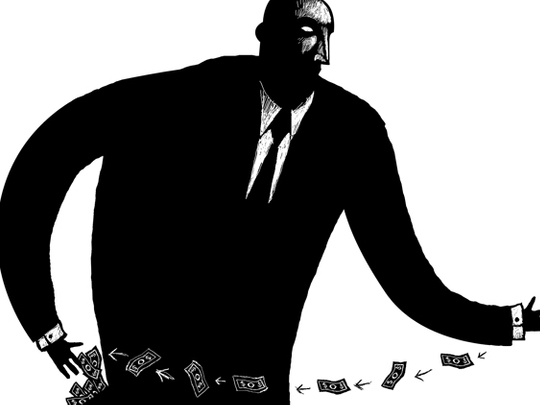
Something good is buzzing in Iraq today, a feeling of freshness to come. After seven blood drenched years, Iraq is on the threshold of change.
Sadly, Iraq will remain in the "waiting mode" even if the best people are elected to put together a government to serve their purposes and fulfill their aspirations as a result of the government budget for 2010.
After a few delays the Parliament passed its 2010 budget on January 26. The new 2010 budget of $72.4 billion (Dh265.7 billion) is a substantial increase over the previous $58.6 billion. It is also the largest amount authorised since Iraq regained its sovereignty in 2005. However, around 70 per cent of the spending will be on operational costs, which go towards salaries, pensions, the food rationing system, in addition to other consumption expenses, while 30 per cent will be for investment in infrastructure and development projects in the capital budget.
This in itself tells us a sorry state of affairs, as one political analyst said: "The budget is a sure indicator that the current government does not intend to rebuild the country".
One cannot help but remember the analyst's words while reviewing the new budget that will prove to be a major burden on the shoulders of the new government, that will take office after the elections.
Estimating Iraq's income for 2010 according to oil prices on the international market, the number will be around $52.78 billion.
This means Iraq will suffer a deficit of $18.531 billion to start with.
Astonishingly, the greater part of the 2010 budget deficit is to be covered by loans from both the World Bank and the International Monetary Fund as stated by Ali Al Dabbagh, the Iraqi government's spokesman.
The IMF will loan Iraq $7 billion, and the Japan-ese government according to Iraqi sources will lend $4 billion,both amounting to $11 billion, leaving the budget $8.3 billion or 10 trillion Iraqi dinars short.
The danger of this situation lies in the fact that the new government, which is expected to lead Iraq into a new era of independence and sovereignty, will have an economy that is reliant on external sources, leading to new political obligations.
Looking at Iraq's current status quo, oil is still the leading source of national income. But without seriously establishing transformational oil industries, little progress will be achieved. Oil-related industries will cover the domestic needs of these products, while exporting the manufactured products will secure additional national income.
Once upon a time not long ago Iraq had industrial establishments that produced food, clothes and other commodities. Nothing compared to Iraq's date processing industry, and Iraq's leather products were sold in major Arab markets.
Iraq's poultry establishments covered domestic needs, and the 13 years of UN sanctions taught Iraqis how to make spare parts for every imaginary machine from photocopiers to spare parts used in hospitals, agricultural tractors and even cars.
The Shaikh Omar market for repairing broken cars worked wonders throughout the years of sanctions, which is a serious indicator of the potential creativeness of Iraqis — if they are given a chance.
Paper was never thrown away in households, printing houses, government offices or schools. Everything was recycled, even bread was recycled for animal feed, and every scrap of plastic was recycled to make plastic bags and slippers. All this was done during the years of poverty and hardship, when the income of the average Iraqi family did not exceed $10 (Dh36.70) a month.
The current government's policy of flooding the market with cheap, poor quality foreign appliances must be compared to the actions of other, more patriotically conscious governments in the way they handle these matters by supporting domestic products.
The Lord above has graciously bestowed Iraq with two rivers, but sadly the only cultivation witnessed since the US invasion was the planting of roadside bombs.
Corruption
Iraq today is considered the world's fifth most corrupt country. According to Transparency International the only countries deemed more corrupt are Somalia and Myanmar, while Haiti and Afghanistan rank just behind.
One of the sectors where corruption is rife is directly related to its livelihood, namely the Ministry of Oil. The ministry's budget for 2009 was $2.25 billion, one of the highest in the country. By comparison only $320 million goes to the Ministry of Defence, $80 million to the Ministry of Education and $75 million to the Ministry of Foreign Affairs.
This ministry which works in a country where the last barrel of oil in the world will be produced, sells refined products to Iraqis for prices higher than those in Jordan, which does not have a drop of oil to its name.
Oil theft is conducted in a continuous and systematic manner through outlets in the south where people living near the Abu Flous port witness oil smuggling under the protection of the ministry itself.
If corruption alone at the government level is controlled, Iraq will stand a chance to survive and may well overcome the huge tide that threatens its existence, further impoverish its people and bury the new government in chaos before a shot is fired at the starting line.










